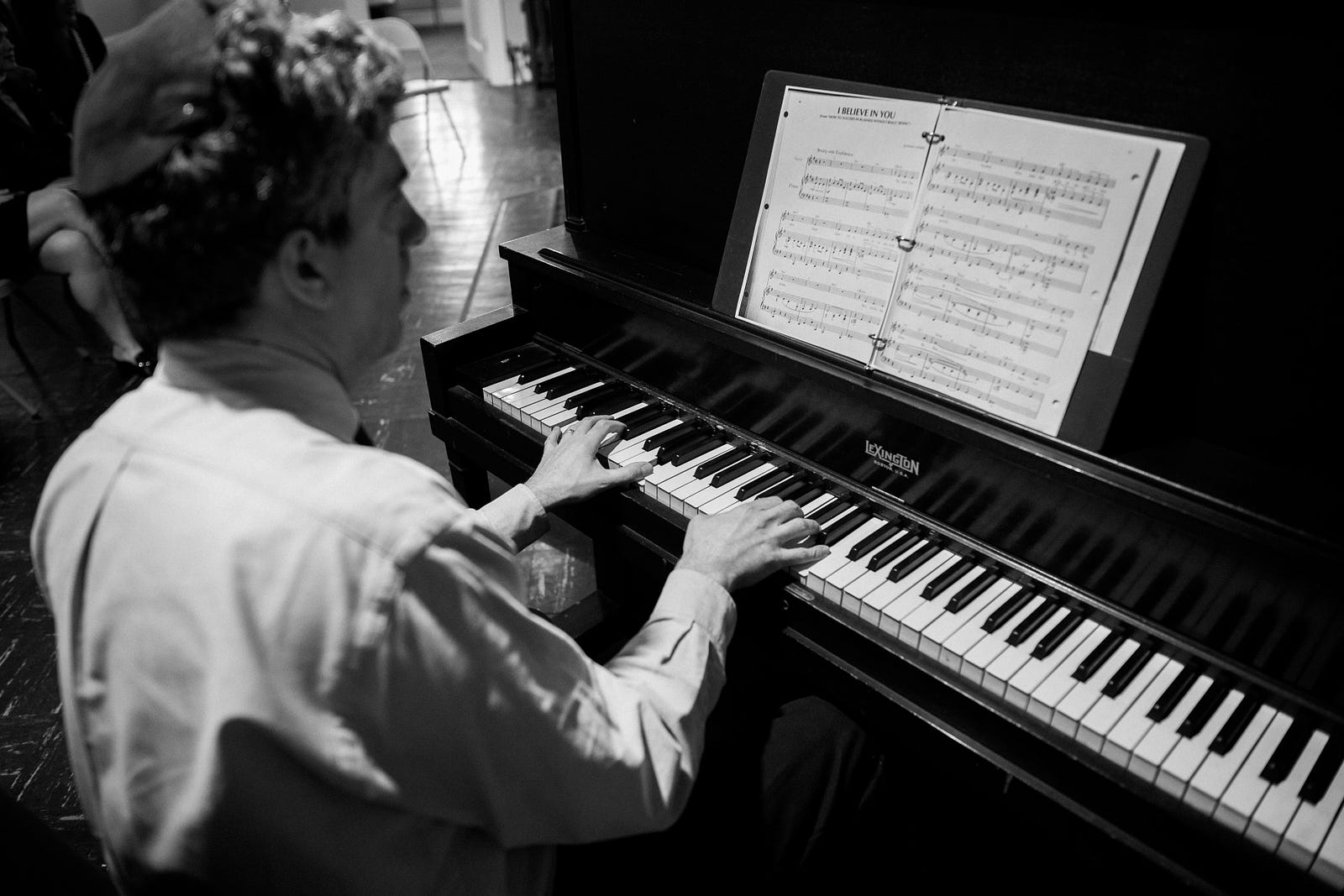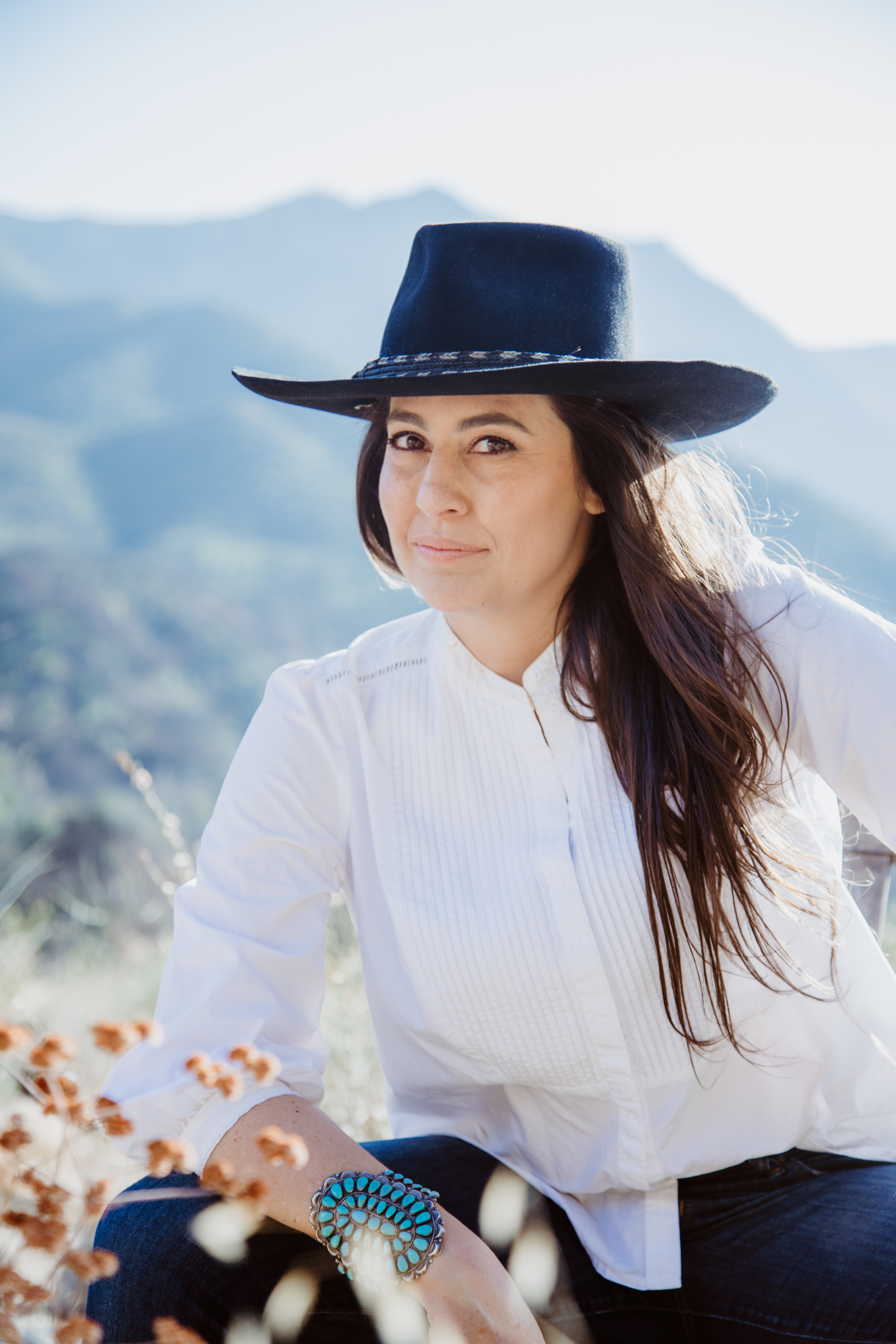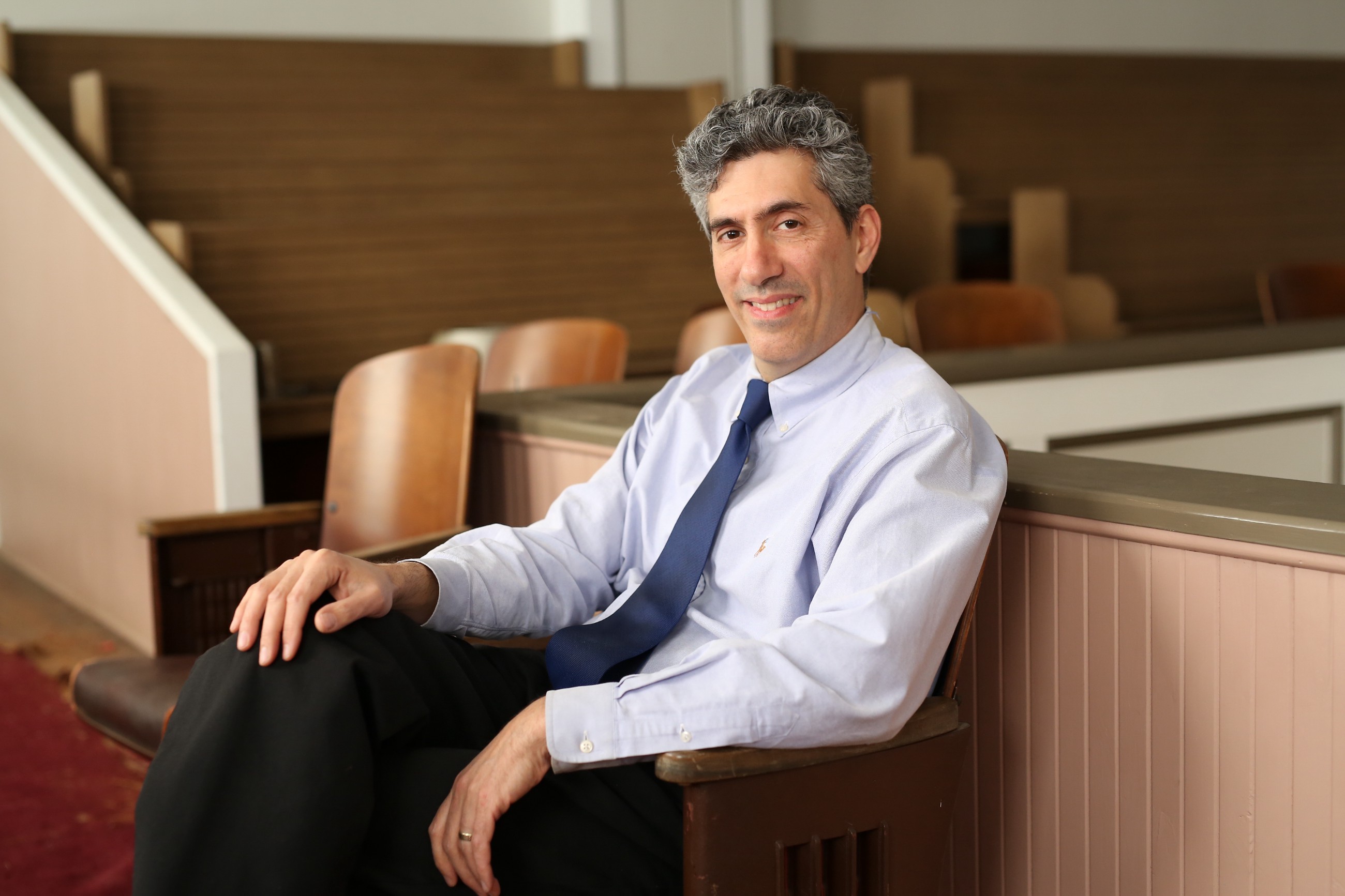As a part of my series about “Learning To Finally Love Yourself” I had the pleasure to interview Adam Cole, A Jazz Musician Who Writes Books. The author of Motherless Child, and musician who writes about the process of learning, Adam has released over a dozen fiction and non-fiction titles. He is featuredin Reader’s Digest, Psychology Today, and NBC.com and serves as a regular contributor to periodicals such as UpWorthy, Transzion and Fupping.
Thank you so much for joining us! I’d love to begin by asking you to give us the backstory as to what brought you to this specific career path.
I’ve been writing since age six. I’ve been playing the piano for the same amount of time. My life has been about finding a way to do both of these things while still being a responsible adult! The path has led me through the position of ballet accompanist, jazz bandleader, Feldenkrais practitioner, elementary and middle school educator, curriculum specialist, and finally writer.
Are you working on any exciting new projects now? How do you hope that they might help people along their path to self-understanding or a better sense of wellbeing in their relationships?
All of my books are about relationships in one way or another. The relationship between teacher and student, between client and customer, between two people who each want control over their life. Each book talks in its own way about how to navigate the challenge of relating to someone else, and to oneself.
Do you have a personal story that you can share with our readers about your struggles or successes along your journey of self-understanding and self-love? Was there ever a tipping point that triggered a change regarding your feelings of self acceptance?
If I am still here, still producing, then I am living that story. Every inch I advance, every chapter I complete, every person I make meaningful contact with, is evidence to myself that I am doing all right. It doesn’t always feel wonderful, but the aggregate is progress.
Last spring for my birthday my wife sent me to my first writer’s conference in San Francisco. Forty-nine years old, a writer for forty-three of them, and I’d never been to a writer’s conference. I was terrified!
The first day I got there, went to a seminar, made conversation, had lunch with three new friends, and then went back to the lobby and had a breakdown!“I can’t do this!” I said. “I’m not a real writer. I can’t be this public, can’t do what I need to do. I have got to get out of here.” Somehow I managed to sit out that self-despair and make it through the rest of the afternoon. Over the course of the four days I found out I had been doing a lot of things that the experts at the convention were advising people to do, that I was knowledgable, experienced, successful. That made it possible for me to take in what I didn’t know and come out okay.
According to a recent study cited in Cosmopolitan, in the US, only about 28 percent of men and 26 percent of women are “very satisfied with their appearance.” Could you talk about what some of the causes might be, as well as the consequences?
The most obvious thing is that we’ve surrounded ourselves with perfect, even impossible images of what people “should look like.” Through CGI, those images can even talk and move around in wholly believable worlds. Even if we know these images are impossible, we still compare ourselves to them when we look in the mirror.
Our entertainment depicts “realistic” romances, breakups, friendships, that we measure our lives against. Pornography depicts impossible visions of sex. And in case watching these things isn’t enough, entire industries have grown up to offer us products that promise to put us in those bodies, those situations, those visions.
Even the question, “Are you satisfied with your appearance?” is part of the problem. Why should any of us be satisfied with it? We’re not the ones who are supposed to like it, other people are! So the real question they’re asking is, “Do you think other people are satisfied with your appearance?” And that’s pure speculation, our fears and prejudices projected onto someone else. There’s no way to win with that mindset, but we’re compelled to play the game with nearly every tool now available to us.
This problem plays into the question of our internal self-image, what we think of as “ourselves” and where we imagine our various body elements to be, as compared to where they really are. Our self-image can become grossly distorted over time from dubious messages given to us by loved ones (“You should stand up straight…your hips are too wide for your height”) and from habitual misuse of our bodies. When our self-image is distorted, our ability to love ourselves may be compromised by an inability to accept those parts of ourselves that belong to us and are worthy of love.
Somatic approaches like the Feldenkrais Method in which I was trained can restore a person’s self image, help them to more accurately sense and accept where everything is, and resolve some of the issues of self-love. While resolving the self-image isn’t necessarily going to fix the self-love problem by itself, it can be very difficult to love oneself, and even to function, if the picture of oneself is inaccurate or incomplete. I think a lack of this awareness accounts for the difficulty so many people have of resolving these kinds of issues today.

As cheesy as it might sound to truly understand and “love yourself,” can you share with our readers a few reasons why it’s so important?
Well, why is it important to love other people? Love is acceptance, tolerance, the willingness to give of ourselves for the sake of having a relationship. Relationships built on love are lasting and powerful.
And since we are thinking creatures capable of abstraction, we can also have a relationship with ourselves, our past, present and future selves as a matter of fact. If we want that relationship to be a good one (and for lots of people, it’s not) love must be a part of the picture. Acceptance of ourselves, tolerance of our flaws, and the willingness to make choices that support ourselves, even when those choices are difficult.
Why do you think people stay in mediocre relationships? What advice would you give to our readers regarding this?
I’m sure the answer is different for different people. I don’t think it makes sense to provide an answer that would fit everyone’s situation. Rather, I’d suggest that asking the question, “Why am I staying in this mediocre relationship?” is the best thing anyone can do.
Once you ask the question, you may find the answer, or answers, that make sense for you. And if you can’t find the answer, you might take the step of asking someone to help you answer that question. It all begins, though, with the question asked of oneself.
When we talk about self-love and understanding we don’t necessarily mean blindly loving and accepting ourselves the way we are. Many times self-understanding requires us to reflect and ask ourselves the tough questions, to realize perhaps where we need to make changes in ourselves to be better not only for ourselves but our relationships. What are some of those tough questions that will cut through the safe space of comfort we like to maintain, that our readers might want to ask themselves? Can you share an example of a time that you had to reflect and realize how you needed to make changes?
Do I see myself accurately? Do I have a way of looking at myself that avoids judgement while giving accurate information, be it therapy, somatic work, or a trusted friend? If I discover that there is a difference between what I think of myself and what I learn, how will I bridge the two versions?
There was a time in my life that was very dark and difficult. I reacted to it with anger and lashed out at the people I loved. That reaction nearly cost me the relationships I treasured the most.
I had to wake up every day and realize how much damage I’d already done. It took years to repair. I had to re-evaluate what “taking care of myself” meant and find a way to do it without abandoning my commitment to the other people I loved.
So many don’t really know how to be alone, or are afraid of it. How important is it for us to have, and practice, that capacity to truly be with ourselves and be alone (literally or metaphorically)?
Whether or not we want to, we’re all going to have to be alone sometimes. Like anything else we’re afraid of, we can wait until it hits us as a crisis, or we can prepare for it ahead of time. Either way we’re going to learn something.
If we can’t tolerate being alone, we’ll organize ourselves around avoiding it. That means we’ll avoid anything that might lead to being alone, like having honest conversations or assessing our other needs. It means we may manipulate other people in ways that could deteriorate otherwise healthy relationships.
Fortunately there are ways to practice being alone in small doses…meditation for example…that allow us to experience whatever comes up in a manageable way, in a confined space and time of our choosing. If something comes up that’s too big for us to tolerate, we have the option of seeking help. I’d stress that this kind of learning is a lifelong process, and nobody is expected to be “good” at it, as if the feelings would vanish if you’re doing it right, only better and better over time, where you can handle the feelings.
How does achieving a certain level of self-understanding and self-love then affect your ability to connect with and deepen your relationships with others?
You can have relationships with others without self-understanding and self-love, just like you can play basketball with a rope tied around your legs. What will you do in that situation? You’ll get hurt a lot, you’ll be angry at your own failures and, if you don’t address the reason for the difficulty, you’ll probably blame the other person in the relationship for not changing themselves to make it work.
If you’re in conflict with someone, it’s vital to know how much of the difficulty in the interaction is coming from them and how much is coming from you. You can’t control anything about them, really, not even when you’re dealing with a child. So it becomes vitally important to the health of the relationship to work with your end.
You have to know yourself very well to be able to make changes on your side that are effective and healthy. You have to have a lot of self love to forgive yourself when you fail, and to admit to the other person that you are coming up short. Relationships that have these kinds of people in them tend to last.
In your experience, what should a) individuals and b) society, do to help people better understand themselves and accept themselves?
Individuals can start with themselves. Anything you do to learn to love yourself is going to have an impact, long-term positive, on the world around you. While that’s a necessary step, it’s not enough.
When you have a society that’s constantly working you in the opposite direction from self-love, using self-hate to sell things or to divide us politically and socially, unless you have certain resources, internal or external, it may be impossible to work on yourself. I would love to see our country and our world continue in a direction of making sure that everyone has enough of what they need to heal. Even better, I’d like to see a world in which we don’t do nearly as much damage to each other in the first place.
What are 5 strategies that you implement to maintain your connection with and love for yourself, that our readers might learn from? Could you please give a story or example for each?
1)I meditate every day. I don’t get off the floor until I’ve at least taken five full breaths. On mornings when I skip this, I can always feel it.
2) I practice and teach somatic work. My particular field is music and metacognition through the Feldenkrais Method. I think any somatic approach, if done with a teacher that really understands what they’re doing, can have powerful effects on our ability to love ourselves.
3) I journal. While language is tricky and not as direct as physical work, it can be very powerful to put what’s happening into words and set them down. Journaling allows us to transcend time, compare who we are to who we were, and to see how different we are from what we thought we wanted to be.
4) I create. I’m an author and a songwriter. When there are issues in my life that are too difficult to journal, it’s really great to be able to abstract them into stories and songs about other people.
5) I blog on my website each week. It’s my way of committing to my ideas about myself by making them public and permanent. It also strengthens my connection to those people who have been reading it, some of them for years.
What are your favorite books, podcasts, or resources for self-psychology, intimacy, or relationships? What do you love about each one and how does it resonate with you?
Those of us in the Feldenkrais community appreciate Moshe Feldenkrais’ books. The Elusive Obvious is full of remarkable insights about human relationships and intimacy from a unique perspective. Anyone who tries this work is going to gain a lot in surprising ways.
I also take a lot from my Dale Carnegie Training. In many ways, the things I learned there helped fill the holes from many other things I’d learned, and helped me tie the pieces together. I’d recommend it to anyone who wants to learn to self-reflect and connect with others socially.
Steven Covey’s Seven Habits of Highly Effective Peopleis a great resource for organizing ourselves so that we can do the work we need to do. It covers a lot of mechanical aspects of organization: time management, prioritizing, etc. But it also relates them to the self.
You are a person of great influence. If you could inspire a movement that would bring the most amount of good to the most amount of people, what would that be? Maybe we’ll inspire our readers to start it…
My personal mission is to guide people to greater self-insight through music instruction. I find that when music is taught well, musicians use all the elements of self-love in their practice: patience, humility without shame, connection with others. I’ve found over the years that the students at my school, the Grant Park Academy of the Arts, most of them children, have shown visible changes in the way they recognize, accept and work with their limitations on the way to mastery.

Can you please give us your favorite “Life Lesson Quote” that you use to guide yourself by?
Can you share how that was relevant to you in your life and how our readers might learn to live by it in theirs?
“Don’t criticize, condemn or complain.” Dale Carnegie. This is sodifficult because we use all three to defend ourselves against our own sense of failure. When we have the courage to live without these kinds of attack-tools, we take more responsibility and as a result empower ourselves.
I’d like to make it clear that this quote isn’t suggesting that we should stay quiet in the face of injustice, or hold our tongues when we are called upon to give critical feedback. Carnegie is talking in interpersonal terms here, about relationships with friends, family and co-workers. Ultimately, the idea is to gauge the quality and effect of our feedback so that we can make it effective and productive, and to consider what we can do about injustice that will be more powerful than the obvious and easy step of simply condemning it.
Thank you so much for your time and for your inspiring insights!


